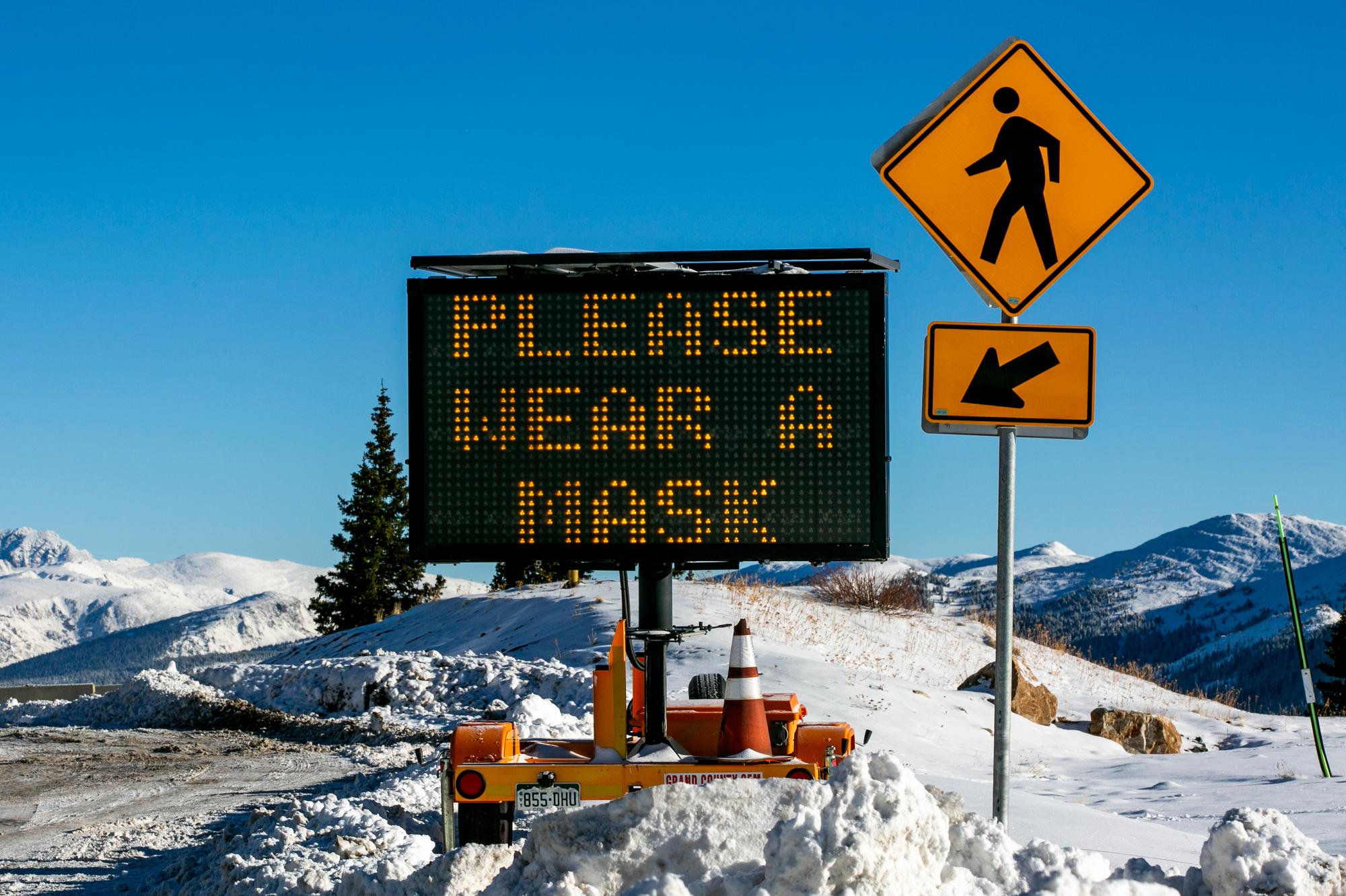
Gov. Jared Polis extended the state’s face covering mandate for 30 days and ordered state employees to work remotely for the next few weeks as he once again implored Coloradans to take the coronavirus more seriously.
At the same time, Polis cheered news that a vaccine under development had shown promising results, and struck an optimistic tone in declaring that the pandemic is nearing an end.
“The end is in sight,” Polis said at a press conference Monday, comparing the race against COVID-19 to running a marathon. “You can see it there. You’re a mile or two away.”
That pronouncement is well ahead of the science on the virus. Though Pfizer announced Monday that their vaccine candidate was “90 percent effective in preventing COVID-19 without evidence of prior infection,” the data behind that study was not released for examination by independent groups.
There is no guarantee that Colorado will actually get that particular vaccine, one of several now undergoing final clinical trials, for distribution. Should a vaccine, or more than one, complete clinical trials and gain approval for distribution, it will be several months before enough doses are made to innoculate a state’s population.
“I’m not concerned by folks who might not want to get the vaccine,” Polis said in response to a question about Colorado’s considerable population of vaccine skeptics. “The issue is going to be that there are more people that want it than can get it for the next several months.”
Polis spoke as more than 1,000 people remained hospitalized in the state with confirmed cases of COVID-19, and Colorado was at risk of overwhelming ICU capacity in a matter of weeks if the current trend continues.
The timing is bad. Case numbers continue to set new records, and the threat of winter weather driving more people inside was underscored by snow falling across much of the state as Polis was speaking.
The coronavirus has spread to a point where containment strategies — testing, contract tracing, and quarantine — lose their effectiveness. Unless the numbers come down, more draconian measures may be needed to check the spread of the disease before Thanksgiving.
Local health departments have so far led the way with new restrictions. Yesterday, a 10 p.m. curfew went into effect in Denver. Bars and restaurants must close by then, and public and private gatherings are also prohibited after 10 p.m. Spectators at sporting events are also prohibited.
Pueblo instituted a 10 p.m. to 5 a.m. curfew for all but essential activities, and Tri-County Health Department instituted a similar order for Adams County, where cases are rising fast.
“This new order is really a 5-alarm call to action, like an evacuation in the face of a wildfire,” said Dr. John Douglas, Executive Director of Tri-County Health Department in a statement accompanying the order.
Colorado Mesa University in Grand Junction asked all students to self-quarantine, and paused varsity sports as cases spike in Mesa County, showing the breadth of this latest outbreak.
It’s clear from spending and traffic crash data that Coloradans ramped up activity through the late summer and early fall. Crashes in Denver have grown quickly since the spring lockdown, and statewide retail sales actually grew in July and August compared to last year. While that’s great for business, it means more interactions and more cases.
In issuing its order for Adams County, Tri-County Health Department noted that case investigations identified personal gatherings and restaurants as the most common places leading to exposure.
While Jefferson County has not issued a new public health order, its rise in cases, hospitalizations and the testing positivity rate have forced it to move from “Level Yellow” to “Level Orange” restrictions imposed by the state: including requiring restaurants, retail and outdoor events to reduce capacity from 50 percent to 25 percent.
Colorado is not alone in dealing with a rise in coronavirus cases. Hospitals are nearing capacity in Wisconsin. And in Utah, where test positivity reached 20 percent, the governor instituted a mask mandate and barred many extracurricular activities and social gatherings.









